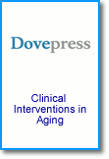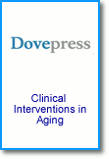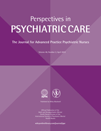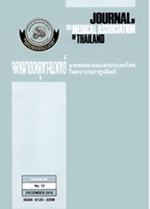ECR-R-18 questionnaire ENG.pdf
ECR-R-18 questionnaire more explanation.pdf
ECRr-18_Thai.pdf
ECR 10 Eng.pdf
ECR 10 Thai ฉบับ ภาษาไทย.pdf
คู่มือฉบับสั้นเกี่ยวกับการใช้แบบสอบถามเรื่องสัมพันธภาพกับคู่ ECR-r-18
การคิดคะแนน ข้อที่คิดคะแนนกลับ (reversed items) ได้แก่ 3, 5, 7, 9, 11, 13, 15, 17
ข้อคาถามย่อย: ชนิดหลีกเลี่ยง (avoidance subscale) ได้แก่ 1, 3, 5, 7, 9, 11, 13, 15, 17
ชนิดวิตกกังวล (anxiety subscale ) ได้แก่ 2, 4, 6, 8, 10, 12, 14, 16, 18
การอ้างอิงและการขออนุญาตใช้
แบบสอบถามเรื่องสัมพันธภาพกับคู่ ECR- r- 18 พัฒนาโดย ศ.นพ.ทินกร วงศ์ปการันย์และคณะ (Wongpakaran & Wongpakaran, มีที่มาจากการปรับแบบสอบถามเรื่องสัมพันธภาพกับคู่ ECR-r- 36 ฉบับภาษาไทยซึ่งพัฒนาโดย ศ.นพ.ทินกร วงศ์ปการันย์และคณะ (Wongpakaran, Wongpakaran,& Wannarit, 2011) ให้สั้นลง แบบสอบถาม revised Experience of Close Relationships Questionnaire ECR r 36 ต้นฉบับเป็นภาษาอังกฤษพัฒนาโดย Fraley RC และคณะ (Fraley, Brennan, & Waller, 2000) ซึ่งสามารถขอใช้ได้โดยไม่ต้องแจ้งเจ้าของ ส่วน ECR-r- 36 ฉบับภาษาไทย และ ECR-r-18 ทั้งฉบับภาษาไทยและภาษาอังกฤษโปรดแจ้ง ศาสตราจารย์นายแพทย์ ทินกร วงศ์ปการันย์ (tinakon.w@cmu.ac.th) หรือ ศาสตราจารย์แพทย์หญิง ณหทัย วงศ์ปการันย์ (nahathai.wongpakaran@cmu.ac.th)
A condensed version of the revised Experience in Close Relationships Questionnaire (ECR-r-18) was created by Professors Tinakon and Nahathai Wongpakaran, MD, FRCPsychT (Wongpakaran et al., 2011). This shorter adaptation was derived from the extended Thai version of the revised Experience in Close Relationships Questionnaire, ECR-r-36. The original ECR-r-36 in English was initially developed by Fraley RC et al (Fraley, Brennan, & Waller, 2000), which is publicly available. For the use of the Thai versions, ECR-r-36 and ECR-r-18, and their English counterparts, kindly notify Prof. Wongpakaran directly for proper referencing and documentation.
The most recent iteration of the ECR-R is the 10-item version (ECR-R-10). Further information about its psychometric properties can be accessed here Psychometric assessment of the 10-item, revised experience in close relationship (ECR-R-10) in nonclinical and clinical populations of adults and older adults in Thailand - PMC (nih.gov).
Scoring Instructions for ECR-R-10
Each item uses a 7-point scale ranging from 1 = strongly disagree to 7 = strongly agree. To calculate an individual's attachment-related anxiety score, average their responses to items 1, 3, 5, 7, and 9. For attachment-related avoidance, average responses to items 2, 4, 6, 8, and 10. However, since items 2, 4, 6, 8, and 10 are 'reverse keyed' (where higher numbers indicate lower avoidance), reverse the responses before averaging. For instance, if someone selects '7' for item 2, it should be re-coded as '1' before computing the average
เอกสารอ้างอิง
Fraley, R. C., Brennan, K. A., & Waller, N. G. (2000). An item response theory analysis of self reports measures of adult attachment. J Pers Soc Psychol, 78, 350 365.
Wongpakaran, T., & Wongpakaran, N. (2012). A short version of the revised 'experience of close relationships questionnaire': investigating non clinical and clinical samples. Clin Pract Epidemiol Ment Health, 8, 36-42.
Wongpakaran, T., Wongpakaran, N., & Wannarit, K. (2011). Validity and reliability of the Thai version of the Experiences of Close Relationships Revised questionnaire. Singapore Med J, 52(2), 100 106.












